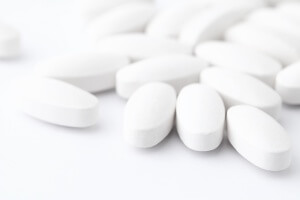How Long Does Suboxone Stay in Your System?

Suboxone, a combination of buprenorphine and naloxone, is a semisynthetic opioid primarily used to treat addiction to other opioids, such as heroin and hydrocodone.
It was developed as an alternative to methadone, the longtime go-to drug for treating heroin addiction.
Though still opioids, methadone and buprenorphine don’t create the same intense high as illicit and commonly abused prescription opioids. They can therefore reduce or eliminate withdrawal symptoms and cravings, but they aren’t as addictive or generally desirable. According to the American Society of Addiction Medicine, there were 1.9 million people in the United States with an addiction disorder involving painkillers in 2014.
Suboxone, however, is still addictive, being an opioid. It can also be abused for an intense high. Though it won’t have much of an effect on those who are already addicted to opioids since these individuals have likely already built up a significant tolerance; those who have never used or only occasionally used these drugs are vulnerable to becoming addicted to either methadone or any of the buprenorphine formulations.
Suboxone Half-Life & Metabolism
 The buprenorphine in Suboxone has an especially long elimination half-life compared to other opioids. Elimination half-life refers to the amount of time it takes for half of a single dose of a drug to leave the body. For buprenorphine, this period lasts for 37 hours, meaning that it can take over 8 days for Suboxone to no longer be detectable in a person’s body.
The buprenorphine in Suboxone has an especially long elimination half-life compared to other opioids. Elimination half-life refers to the amount of time it takes for half of a single dose of a drug to leave the body. For buprenorphine, this period lasts for 37 hours, meaning that it can take over 8 days for Suboxone to no longer be detectable in a person’s body.
How Long Is Suboxone In Your System?: Detection & Drug Tests

The process of metabolizing Suboxone in the liver creates metabolites that tend to stay in the body for even longer than the drug itself. Modern drug tests can detect these as well, so even after 8 days, an individual might still produce a positive test for buprenorphine.
Blood tests are invasive but can detect substances shortly after ingestion; however, they also have a smaller window to detect buprenorphine. The best time for a blood test to work is a little over 2 hours after the last dose. Saliva tests are used more often because they’re noninvasive and simple to administer. These tests can work for a few days or possibly more than a week after the last dose of Suboxone.
Suboxone addiction may not be as common as other addiction disorders, but it’s essentially just another opioid problem. There are many specialized facilities that can treat this kind of disorder and help afflicted individuals avoid the many issues associated with long-term opioid abuse. If an addiction is suspected, it’s best to seek medical advice and taper off the dosage of Suboxone under medical supervision rather than quitting cold turkey.
Factors Influencing How Long Suboxone Stays in Your System
This period of time is not the same for everyone. There are a number of factors that influence how quickly Suboxone will be flushed out of the system. These include:
- Body fat content
- Weight and height
- Age
- Metabolism speed
- Size of the last dose taken
- Amount of time the abuse has gone on
- Liver health


